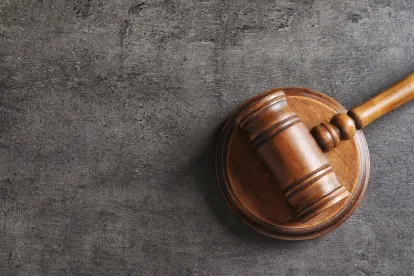The Ninth Circuit affirmed dismissal of a consumer fraud class action pursuing restitution under California’s Unfair Competition Law because the plaintiff failed to show she lacked an adequate legal remedy. Sonner v. Premier Nutrition, No. 18-15890 (9th Cir. June 18, 2020). In doing so, the Ninth Circuit resolved a split in the California federal courts regarding whether plaintiffs may pursue solely equitable relief, like restitution under the Unfair Competition Law (UCL), Consumer Legal Remedies Act (CLRA), or False Advertising Law (FAL), when legal damages under the CLRA are available in the same amount for the same alleged harm. This decision has important implications for consumer class actions in California federal courts.
Background
The case arose out of allegations that Premier Nutrition marketed its dietary supplement beverage Joint Juice as supporting cartilage, lubricating joints and improving joint comfort, and that Joint Juice failed to provide these benefits. The complaint demanded injunctive relief, restitution under the UCL and CLRA, and damages under the CLRA. For those not familiar with the California statutes, the UCL authorizes restitution only, not damages, whereas the CLRA allows both. Restitution is considered an equitable remedy, even though it can result in the payment of money.
Less than two months before trial, Sonner sought leave to file an amended complaint that dropped the CLRA damages claim. This was a transparent strategic move: by dropping the CLRA damages claim, Sonner could request that the judge award $32 million as restitution in a bench trial, rather than having to persuade a jury to award this amount as damages. Premier opposed, arguing that Sonner’s proposed amended complaint would require dismissing the restitution claims because there was an adequate remedy at law for the same injury. The district court allowed the amendment, but warned Sonner that if Premier successfully dismissed the restitution claims, the court would not allow another amendment to resurrect the damages claims.
Undeterred, Sonner amended her complaint. Premier moved to dismiss, and the district court granted the motion, holding that the UCL and CLRA claims were subject to California’s inadequate-remedy-at-law doctrine, and the plaintiff had an adequate remedy at law under the CLRA.
Intra-Circuit Split
The district court’s holding put it on one side of an intra-circuit split. On one side, courts held that plaintiffs alleging claims providing an adequate remedy at law were barred from pursuing claims for equitable relief, including under California’s consumer protection statutes, unless they could show why the available legal damages were inadequate. See, e.g., Munning v. Gap, Inc., 238 F. Supp. 3d 1195, 1203–04 (N.D. Cal. 2017); Duttweiler v. Triumph Motorcycles, 2015 WL 4941780 at *8 (N.D. Cal. Aug. 19, 2015).
On the other side of the split, courts held that, because the UCL and CLRA state that their remedies are “cumulative” to the remedies available under other state laws, the availability of damages did not bar a claim for equitable relief under the UCL and CLRA. See, e.g., Luong v. Subaru of Am., Inc., 2018 WL 2047646 at *7 (N.D. Cal. May 2, 2018); Estakhrian v. Obenstine, 233 F. Supp. 3d 824, 846 (C.D. Cal. 2017).
The Ninth Circuit Decision
The Ninth Circuit affirmed the Sonner district court, but on federal rather than state grounds. It held that federal common law controls a federal court’s equitable authority, and state law cannot expand or limit that authority. As a result, a federal court must apply traditional equitable principles before awarding restitution under the UCL and CLRA.
Consequently, before awarding equitable relief under the UCL, CLRA, or FAL, a federal court must find that the plaintiff lacks an adequate remedy at law. In consumer fraud cases seeking restitution, that will rarely be the case, because the same recovery available as “restitution” under the UCL and FAL is generally available as “damages” under the CLRA. That was the outcome in Sonner, because the class sought the same sum in equitable restitution—a full refund of the purchase price, totaling $32 million for the class—as it requested in damages to compensate for past harm.
Implications for California Consumer Class Actions in Federal Courts
The Ninth Circuit’s decision prevents plaintiffs in consumer class actions from eliminating the defendant’s right to a jury trial by seeking monetary recovery under the guise of “restitution” that is equally available as “damages.” As the Sonner Court recognized, this is one of the core reasons for the inadequate-remedy-at-law requirement in the first place—to protect the constitutional right to trial by jury.
Yet open questions remain. For instance, can a plaintiff pursue a UCL claim at all if they have a viable remedy under the CLRA? Sonner arguably suggests no, but it does not directly answer the question since Sonner abandoned her CLRA claim, rather than pursuing it simultaneously with a UCL claim. If consumer plaintiffs are indeed compelled to abandon their UCL claim when the CLRA affords identical relief, they will also be required to meet the CLRA’s more demanding causation requirement, which could affect class certification. Specifically, the CLRA requires a showing of reliance for absent class members, whereas the UCL and FAL do not. See Steroid Hormone Prod. Cases, 181 Cal. App. 4th 145, 155-56 (2010). While reliance may be inferred by a showing of materiality, the inference can be rebutted by evidence that some class members did not rely. In re 5-Hour Energy Mktg. & Sales Practices Litig., 2017 WL 2559615, at *7 (C.D. Cal. June 7, 2017).
Similarly, must a plaintiff allege an inadequate legal remedy in her complaint to avoid dismissal of equitable claims at the pleading stage? This is another issue on which California federal courts are divided. Compare Robinson v. J.M. Smucker Co., 2019 WL 2029069, at *6 (N.D. Cal. May 8, 2019) (dismissing UCL and FAL claims where plaintiff’s complaint pled an adequate legal remedy under the CLRA), with Wildin v. FCA US LLC, 2018 WL 3032986, at *6–7 (S.D. Cal. June 19, 2018) (allowing plaintiff to plead “alternative remedies” for equitable and legal relief). Because Sonner was decided on the eve of trial, it does not address whether courts may or must decide this issue at the pleading stage.
Takeaways for Consumer Class Action Defendants
-
Defendants faced with a choice of agreeing to voluntary dismissal of CLRA or other legal claims (such as breach of warranty, breach of contract, etc.) should carefully weigh their options.
-
Defendants who strongly value a jury trial should not waive this right by agreeing to voluntary dismissal of CLRA or other legal claims.
-
On the other hand, if a defendant is neutral between a bench and jury trial, agreeing to dismiss the CLRA claim can reduce the defendant’s overall exposure, because the CLRA carries the risk of punitive damages and automatic attorney’s fees for a prevailing plaintiff, neither of which is available under the UCL or FAL.
-
-
Consider an early motion to dismiss UCL and FAL claims, particularly where the plaintiffs simultaneously allege a CLRA or other legal claim for the same conduct and seek damages. A successful motion will not affect the scope of discovery or the defendant’s financial exposure (because the UCL and FAL have similar substantive elements to the CLRA and provide the same potential monetary damages), but it can afford defendants an advantage in opposing class certification, and narrow the plaintiffs’ potential pathways to relief.




 />i
/>i

